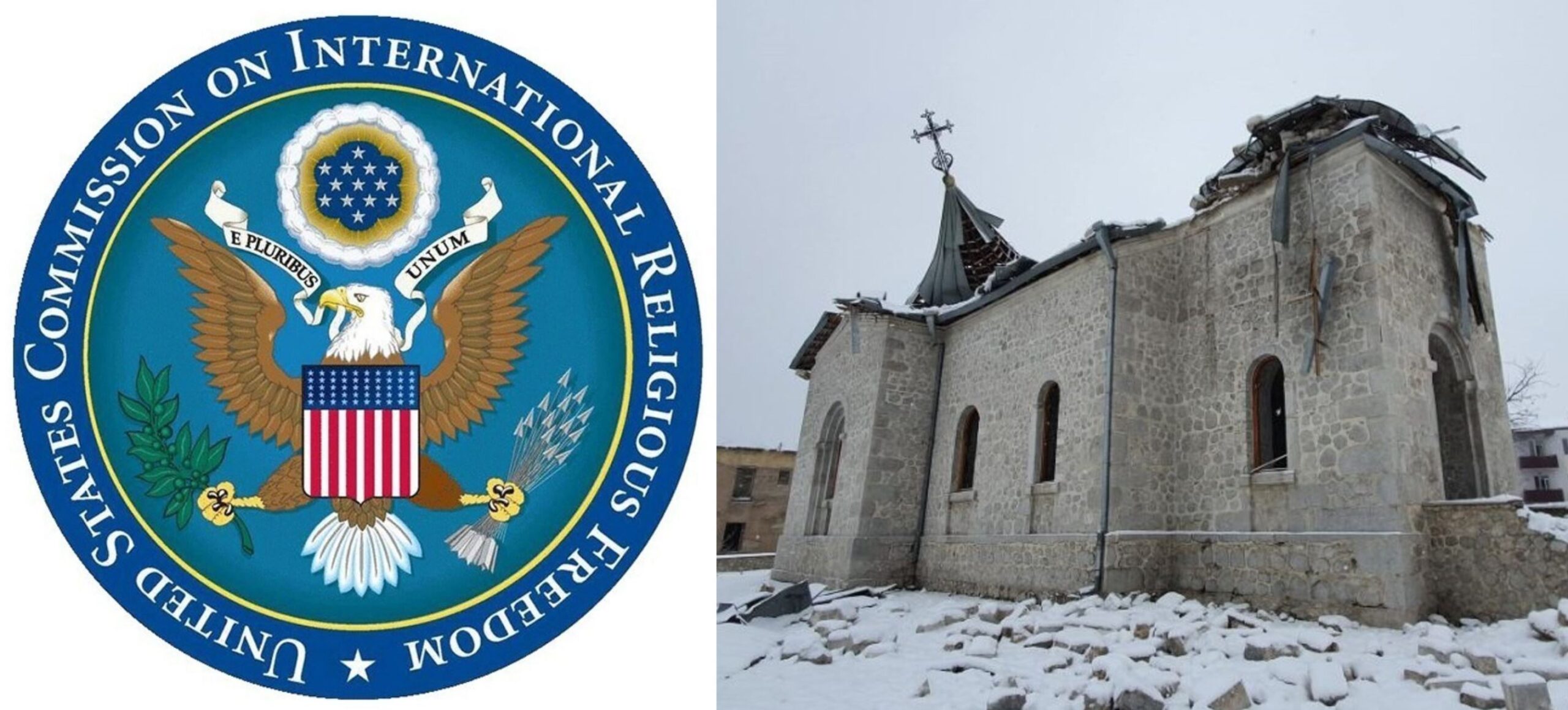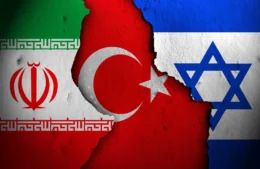USCIRF: Azerbaijan continues systematic destruction of Armenian religious & heritage sites in Artsakh
- (0)

The U.S. Commission on International Religious Freedom reports worsening religious freedom in Azerbaijan, citing abuse of Armenian POWs and destruction of religious sites.
The United States Commission on International Religious Freedom (USCIRF) has released its annual report, describing the state of religious freedom in Azerbaijan in 2024 as deteriorating. According to the report, several Armenian prisoners of war have suffered violence driven by religious hatred during their captivity in Azerbaijan.
“Armenian Christian detainees are frequently subjected to cruel treatment, including beatings, psychological abuse, denial of medical care and adequate nutrition. Religious persecution is also evidenced by attempts to burn off tattoos of crosses,” the report states, as cited by Sputnik Armenia.
The report also draws attention to the systematic destruction of Armenian religious and cultural heritage in Artsakh (Nagorno-Karabakh).
It cites satellite documentation provided by Caucasus Heritage Watch (CHW) regarding endangered religious sites in the region. In June 2024, CHW reported the destruction of Armenian religious locations, including a 19th-century church, two cemeteries, and other monuments.
The U.S.-based NGO Freedom House also emphasized that during the 2020 and 2023 military operations, Azerbaijan carried out a comprehensive strategy to erase the ethnic Armenian population and cultural presence from Nagorno-Karabakh. The organization labeled these actions as religious crimes and referred to them as war crimes.
USCIRF recommended that the U.S. government and Congress take several actions, including imposing targeted sanctions on Azerbaijan and allowing independent international observers, such as United Nations representatives, to access Nagorno-Karabakh and surrounding areas to verify and document cultural and religious heritage.
The commission further suggested that the Senate Foreign Relations Committee hold hearings and that Congress initiate and pass legislation to reconsider the waiver of Section 907 of the Freedom Support Act, conditioning it on visible progress in religious freedom in Azerbaijan.
Azerbaijan launched a large-scale attack on Artsakh on September 19, 2023, subjecting the entire region to heavy shelling. One day later, on September 20, the authorities of the Republic of Artsakh accepted a ceasefire proposal by the Russian peacekeeping command, agreeing to Baku’s conditions: the disarmament of the Defense Army and the dissolution of the Republic. Forced displacement began on September 24, with over 100,000 people fleeing to Armenia. Reports suggest only around 20 Armenians remain in Artsakh. On September 28, President Samvel Shahramanyan signed a decree dissolving the Republic of Artsakh, effective January 1, 2024.



















